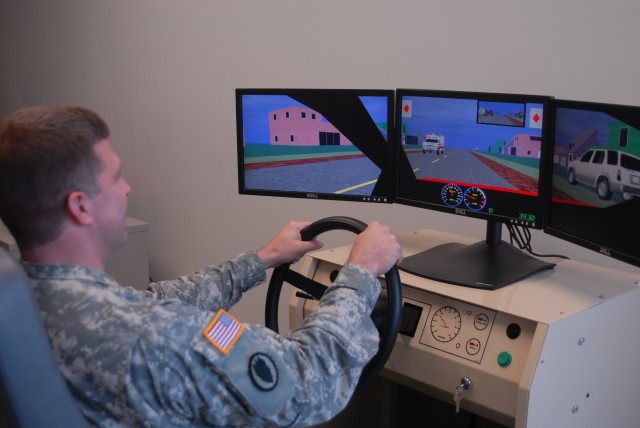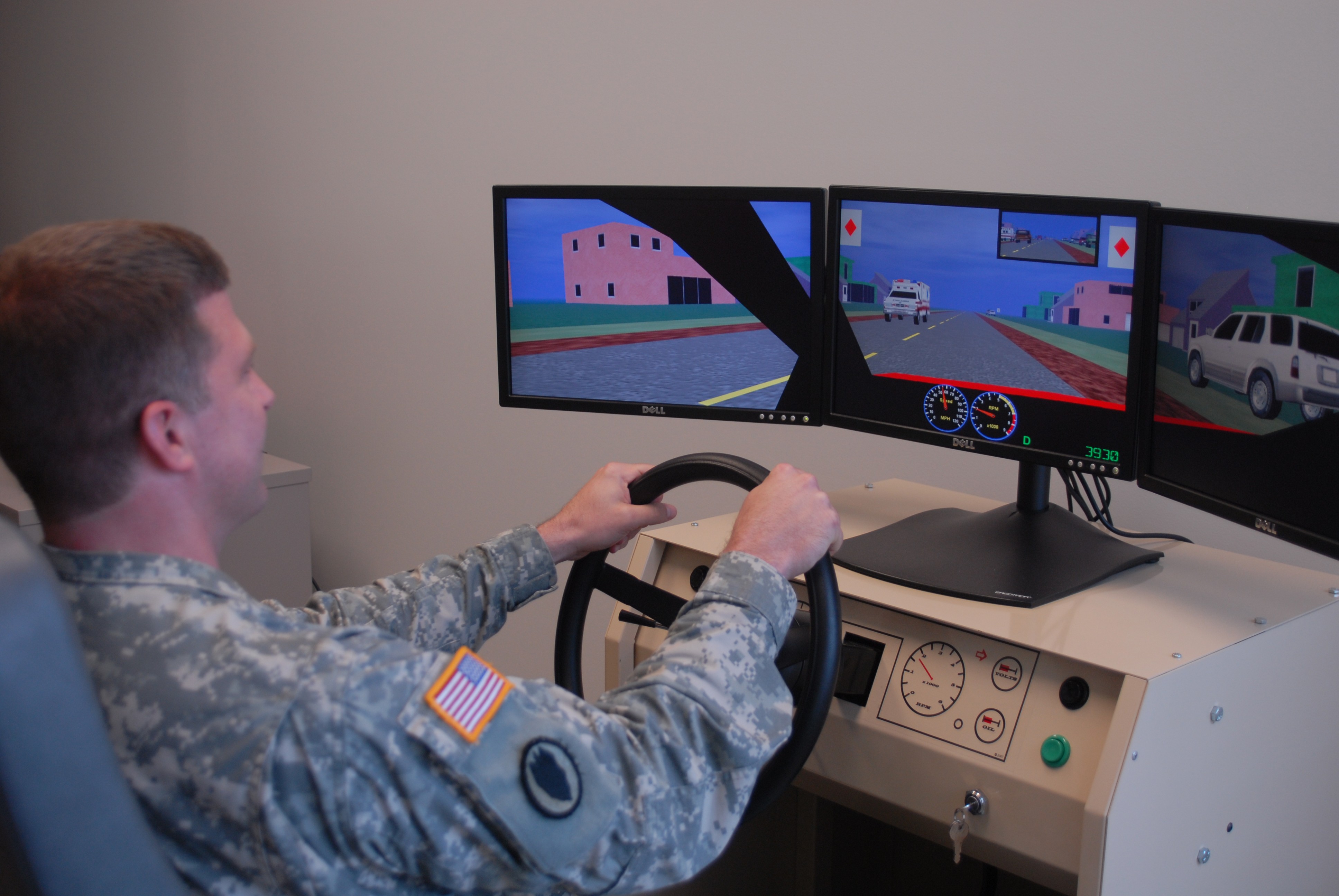Fort Knox's Ireland Army Community Hospital opened the doors to its Traumatic Brain Injury clinic Friday.
TBI is considered the signature injury of the wars in Iraq and Afghanistan; the Department of Defense has invested millions of dollars to diagnose, treat, rehabilitate, and reintegrate Soldiers into their units if they want to stay on active duty.
For its part, IACH has been planning a TBI clinic for months. All the equipment was in place, the staff to operate the equipment was ready, but the clinic was lacking a neurologist to oversee the clinic.
Tired of waiting, Maj. Thomas Hair, a family practice physician, stepped up and agreed to take the responsibility for the TBI until the specialized doctor can arrive.
IACH Commander Col. Rhonda Earls said in Friday's ribbon-cutting ceremony that the clinic was developed for Soldiers who experience the blasts of Improvised Explosive Devices - and not just once or twice.
"I saw a Soldier who had sustained nine IED blasts in 15 months," Earls said.
She thanked the clinic's first official patient, Sgt. Justin Crosby, for testing the equipment and providing feedback from his end of the stethoscope.
"This is something the Army has needed for a long time," Crosby said. "This clinic makes sure Soldiers will get the help they need."
However, Crosby would be the first to tell Soldiers that he received all the help he needed from IACH. When Earls asked him which was his favorite piece of equipment, he replied quickly, "The staff."
He explained by saying, "(The hospital) had all the equipment I needed; really, it has been the staff for me. They were helping me long before the equipment got here. Actually, because of my short term memory loss, the PDA (obtained by the staff) has been one of the most useful devices for me. It tells me when to take my meds, when to be at appointments."
Hair conducted tours of the clinic and its many new-fangled pieces of equipment, along with some very familiar ones.
"This is 'bleeding edge' technology," Hair said.
Apparently, by repeating muscle movements, sometimes the brain cells that were damaged in IEDs respond. Hair explained that science is learning more and more about the unique damage sustained by brains during a blast.
"Professional football players get hit just as often and just as hard as combat Soldiers," Hair said, "so why do Soldiers suffer more damage'"
The answer was finally discovered after many lab experiments, Hair added. With explosions, there is a twisting, shearing motion which forces the brain to spin along the bony interior of the skull, scraping the delicate brain tissue, particularly in the frontal lobes, where high functions of the brain - like language, memory, personality, decision-making skills -- reside . The axons stretch and break while life support cells die.
"The sad part is that as cells die, Soldiers are left knowing that they are changing, but powerless to understand it or control it," Hair said.
"We used to think that brain tissue and spinal cord tissue could not regenerate itself; a dead brain cell was gone forever," Hair said. "That's no longer true. Maybe we can 'wake up' the part of the brain that was damaged."
Physicians are not sure if the brain is actually rebuilding itself or just learning to work around the damaged area, but the signs from increased physical activity are very encouraging, Hair said. And, just like muscle strength, it seems the brain strength increases with repetitions.
"The treadmill is one of my best tools," he said.
In addition to the treadmills, the TBI clinic is equipped with a DynaVision machine to assist with diagnosing and rehabilitating vision problems, a biofeedback chair to teach Soldiers how to relax, a Wii Fit system which teaches balance, rhythm, and physical training in a controlled environment ,as well as a driving simulation program.
Trish Burtoft, a supervisional physician assistant, oversees the Tele-A-Nurse program, another part of the TBI clinic. With a large TV screen and telephone link, Burtoft can conduct a consultation with a neurologist at Walter Reed on a patient standing in the TBI clinic.
"We are a link for Soldiers at Knox to the finest surgeons and neurosurgeons in the country," she said, "and that's at Walter Reed."
While the staff will help screen patients and determine their deficits, physicians will treat the symptoms. Because there is so much similarity between TBI and PTSD symptoms, it requires a team to cover all the problems, which affect memory, balance, sleep, and mood.
"Nothing is more wonderful than seeing all this happen in one place," Burtoft explained. "Before, we had to send the Soldiers to so many places, and TBI patients have enough trouble remembering their appointments."


Social Sharing